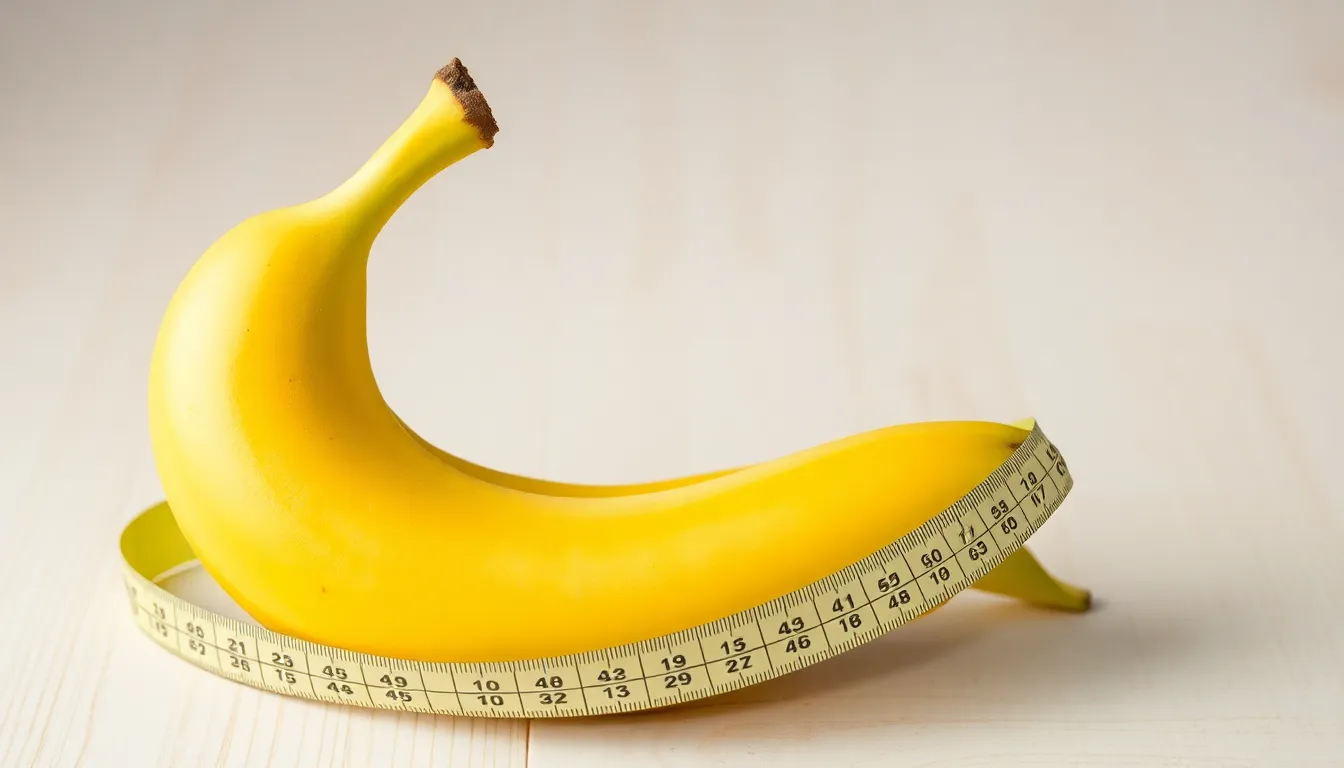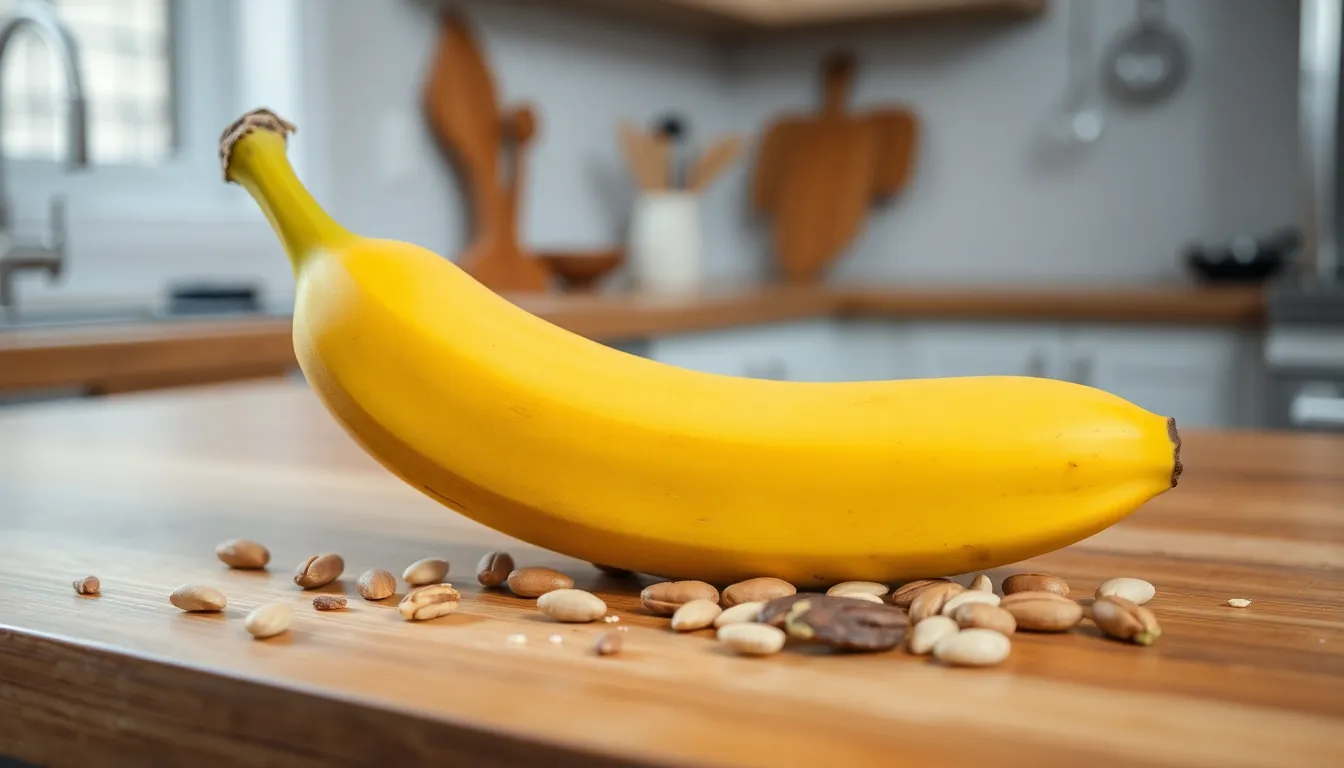Bananas are the ultimate snack—easy to peel, deliciously sweet, and packed with potassium. But when it comes to protein, many might wonder if this beloved fruit packs a punch or is just a pretty face. After all, can a banana really hold its own in the protein department, or is it merely a sidekick to those beefy protein shakes?
Table of Contents
ToggleNutritional Profile Of A Banana
Bananas are known for their nutritional benefits, serving as a quick and healthy snack option. Their balanced nutrient profile makes them popular among various dietary preferences.
Macronutrients Breakdown
Carbohydrates comprise the majority of a banana’s macronutrient content. A medium-sized banana contains approximately 27 grams of carbohydrates, with 14 grams of sugar and 3 grams of dietary fiber. Protein content is low, measuring around 1.3 grams per medium banana. Fats are negligible, totaling less than 0.5 grams. This macronutrient balance showcases bananas as energy-boosting fruits, ideal for fueling workouts or daily activities.
Micronutrients Present
Bananas are rich in several essential vitamins and minerals. One medium banana provides 422 milligrams of potassium, which supports heart health and muscle function. Vitamin C contributes around 10% of the daily value, promoting immune health. Also present are small amounts of vitamin A, magnesium, and vitamin B6. These micronutrients play various roles, including supporting metabolism and helping maintain proper nerve function.
Protein Content In Bananas

Bananas contain a small amount of protein, which complements their carbohydrate content. A medium-sized banana offers approximately 1.3 grams of protein. This quantity is not substantial compared to other protein sources, but it contributes to the overall nutritional profile.
How Much Protein Is In A Banana?
A medium banana contains around 1.3 grams of protein. This amount represents about 2% of the daily recommended protein intake for an average adult. While bananas aren’t protein powerhouses, their protein content can still aid in muscle repair when combined with a protein-rich food.
Comparison With Other Fruits
Comparing bananas to other fruits highlights their lower protein content. For instance, apples and oranges provide similar protein amounts, ranging from 0.5 to 1 gram per fruit. In contrast, fruits like guava and blackberries offer more protein, around 4.2 grams and 2 grams, respectively. Despite the lower protein level, bananas remain popular due to their numerous health benefits and convenience as a snack.
Health Benefits Of Protein
Protein plays a vital role in maintaining overall health. It supports muscle growth, repair, and immune function. Meeting daily protein requirements is important for energy levels and satiety.
Importance Of Protein In Diet
Protein contributes to muscle maintenance and repair. It aids in hormone production and enzyme function, crucial for various bodily processes. Sufficient protein intake fosters weight management by promoting feelings of fullness. Adults typically require around 46 to 56 grams of protein daily, depending on age and activity level. Inadequate protein consumption can lead to fatigue, muscle loss, and weakened immunity. As an essential macronutrient, protein should be prioritized in a balanced diet for optimal health.
Other Sources Of Protein
Numerous foods provide high protein content. Animal products, including chicken, beef, fish, and dairy, offer substantial protein sources. Plant-based options also exist, such as lentils, chickpeas, quinoa, and tofu, catering to various dietary preferences. Nuts and seeds serve as additional protein-rich snacks. Eggs stand out as versatile and high-quality protein sources. Incorporating a variety of protein options helps meet daily requirements while supporting diverse dietary habits.
Common Misconceptions About Bananas
Many people misunderstand the protein content in bananas. While they contain some protein, about 1.3 grams per medium-sized banana, this amount is relatively low compared to protein-rich foods.
Are Bananas High In Protein?
Bananas aren’t considered high in protein. Their protein content represents around 2% of an adult’s daily protein needs. Given this, bananas primarily serve as a source of carbohydrates and vitamins, not protein.
Can Bananas Replace Protein-Rich Foods?
Bananas cannot effectively replace protein-rich foods. Foods like chicken, fish, and legumes provide significantly higher protein amounts. Relying solely on bananas for protein intake won’t meet daily requirements, which vary from 46 to 56 grams for adults. Incorporating a variety of protein sources remains essential for balanced nutrition.
Bananas are a nutritious fruit that provides a variety of health benefits but shouldn’t be relied upon as a primary protein source. With only about 1.3 grams of protein per medium-sized banana they serve more as an energy-boosting snack than a significant contributor to protein intake. While they complement a balanced diet rich in protein from other sources they can’t replace foods like meat legumes or dairy. Enjoying bananas alongside these protein-rich options ensures a well-rounded nutritional profile that supports overall health and wellness.


